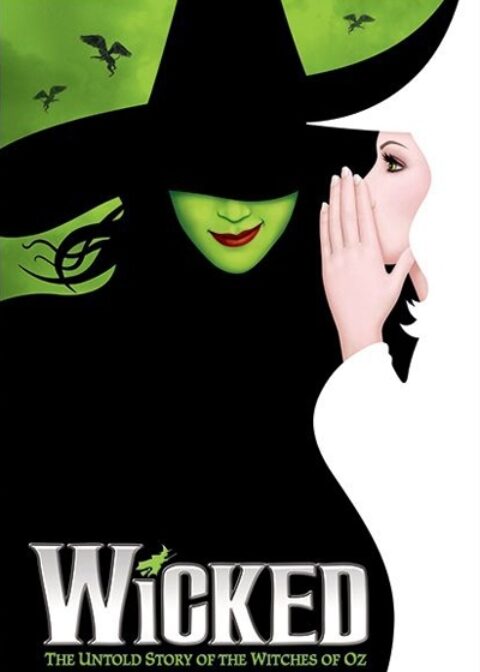Broadway Show producers use tricks of their trade to sell Broadway tickets and keep their Broadway shows alive that including giving out free tickets, fake reviews and stunt casting
Broadway Show Producers Use Tricks To Sell Broadway Tickets
Broadway's The Producers, which starred Nathan Lane and Matthew Broderick, was a farcical look at the extremes that a very unscrupulous Broadway producer was willing to go to in order to make a profit.
Real-life Broadway producers don't usually resort to seducing old ladies to raise money, nor do they deliberately choose to produce wildly offensive shows (although frequent Broadway-goers might wonder sometimes!). But here are some of the top tricks that Broadway producers employ in order to spread buzz and sell tickets to their shows.
1. "Papering" the Theatre
To keep the house full, especially on nights that critics are expected to be in attendance, Broadway producers will often "paper" -- i.e. give out free or very heavily discounted tickets. They do this by offering tickets to various Broadway industry organizations, universities, and papering services. These tickets usually end up in the hands of Broadway fans, actors, and other Broadway insiders whose presence helps create a big and appreciative audience.
The Broadway theatre experience tends to be more enjoyable when you're with a lot of people, so the producer hopes that will make an impression on the critics and inspire the paying customers to tell their friends that the show is a hit. And just as Broadway producers will paper a theater to create a big audience, on occasion some have been known to buy up their own tickets to create the appearance on paper that the show is doing better financially than it really is.
2. Broadway Show Shills
Good word-of-mouth is one of the most effective ways for a Broadway show to sell tickets. And, in the internet age, many Broadway producers have elected to take matters into their own hands by manufacturing positive word-of-mouth. So next time you see somebody proclaiming that Broadway Musical X is "the most amazing show I've ever seen!!!" on a Broadway forum, keep in mind that they may be a paid "shill" for that show. B
ut how can you tell a shill from a genuine fan? Well, shills tend to be more generic in their praise and lacking in any negative criticism at all. Also, they usually appear out of nowhere, post numerous times about one particular Broadway show, and don't contribute in discussions about Broadway shows other than the one they are shilling for.
3. Broadway Review Quotes Taken Out of Context
Audience reaction isn't the only thing that Broadway producers try to control in order to sell tickets -- sometimes they will even attempt to make a critic's negative review seem positive by pulling phrases out of context. You know those effusive quotes that you see on Broadway theater marquees and in advertisements? They are frequently misleading. For instance, in his review a critic might write, "This show is a must-see for people who enjoy being tortured for two hours." But the pull quote that the Broadway show's marketing team will put in the ads simply reads "A must-see!" Suffice it to say, you should always take these quotes with a grain of salt.
4. Find a Person with the Same Name as a Critic
Legendary Broadway producer David Merrick once decided that the next best thing to getting a good review from a New York critic was to simply find people with the same names as the major New York critics and pay those people for a good review. Merrick then posted the positive quotes next to the names in his show ads, and nobody could really accuse him of lying! A modern spin on this was attempted recently when a Broadway show took a positive quote posted by a reader on the New York Times website and put it in the show's advertising, attributing it to "NYTimes.com" - the idea being that most people would just assume that the rave had come from the NY Times theater critic.
5. Stunt Casting
A practice that is likely as old as Broadway itself, but in contemporary times was popularized by Broadway producers Barry and Fran Weissler, is known as stunt casting. In an attempt to keep up ticket sales to their 1994 Broadway revival of Grease, the Weisslers kept casting B-list stars and actors whose careers were on the wane. They have continued the same strategy with their Broadway revival of Chicago, which has featured an endless parade of faded pop singers and former TV stars. Many other Broadway producers also use this type of stunt casting to boost ticket sales for their struggling shows, recent examples including Hairspray (which has cast former teen idols like Tevin Campbell and reality TV stars such as Ashley Parker Angel) and The Color Purple (which has featured at least a couple of American Idol contestants).
6. Casting Big Stars
Where stunt casting is a desperate trick to spur business when ticket sales are low, casting big stars is what Broadway producers try to do when they're in the planning stages of a show. Many movie and TV stars either began as theatre actors or feel that doing Broadway would really test their chops, so it's very common for stars to appear on the Broadway stage. However, they usually can't commit to a standard one-year Broadway contract because of their filming schedules, so the most famous stars generally only appear in limited run shows.
Naturally, Broadway producers love to cast these people because it means that advance ticket sales will be very strong. And if it's a limited run play that sells out, then the Broadway producer is usually able to turn a profit on the production quite easily. Most famously this happened with the Broadway production of David Hare's play The Blue Room starring Nicole Kidman (in the nude, no less), as well as the 2007 Broadway revival of Cyrano de Bergerac starring Kevin Kline and Jennifer Garner.
7. Premium Ticket Prices
On those rare occasions that a Broadway show becomes a bona fide hit, a Broadway producer has the opportunity to make a lot of money on it. And so do the ticket brokers and scalpers who buy seats at the box office and then resell them at inflated prices. In an effort to beat these ticket resellers at their own game, Broadway producers finally introduced "Premium Seats".
These are prime seats (usually in center orchestra or front mezzanine) sold at outrageously high prices, ranging from $150 to $450 per ticket. If you're desperate to see a sold-out show, or you happen to be a millionaire, this is an easy way to secure great seats to a Broadway show. But the savvy Broadway fan will usually try to grab tickets as soon as they go on sale (to get good seats at the normal ticket price), or will wait till right before the performance when the box office releases unsold premium tickets at the regular price.
8. Line Around the Block
A clever way that a Broadway producer can create the illusion that her show is a big hit, even if it's not, is to insist on having the audience file into the theater in a single line to have their tickets scanned. The line gets backed up very quickly and soon may be snaking all the way down the block and around the corner as audience members continue to arrive. This leaves people on the street with the impression that the show playing at that theater is a smash.
9. Publicity Stunts
Broadway producers rarely go for Hollywood-style publicity stunts, but sometimes they come up with a unique idea that gets special attention. Several years ago, the producers of London transfer The Play What I Wrote decided to sell tickets to their first, second, third, fourth, and fifth Broadway preview performances for $1, $2, $3, $4, and $5, respectively. On the morning that these tickets went on sale, the play's stars and its director, Kenneth Branagh, served tea and scones to the mass of people waiting in line out in the cold.
The stunt helped the show make the papers, immediately endeared it to the Broadway community (who are always grateful for cheap tickets), and ensured full and enthusiastic audiences for the first several performances. On the other end of the spectrum there is the negative publicity stunt, such as the time that a producer actually hired a woman to run up on the stage in the middle of a play and slap a performer! Not surprisingly the producer in question was David Merrick.
10. Unusual Show Times
Most Broadway shows play a standard eight-performances-a-week schedule that includes evening shows Tuesday through Saturday, and matinees on Wednesday, Saturday, and Sunday. But many people, especially tourists who might be in New York City for a long weekend, prefer a broader range of times to choose from. So some Broadway producers like to schedule shows on "off" nights Sunday and Monday, figuring that if they're the only game in town, they're likely to do good business on those nights.
Very occasionally, a Broadway producer will schedule matinees on weekdays other than Wednesday. Popular seasonal shows like How the Grinch Stole Christmas might have as many as three or four performances in one day to meet the demand.
11. A Recognizable Title
Because Broadway is such a risky business, Broadway producers like the idea of being able to sell tickets to a known property. For this reason, you can see shows on Broadway nowadays with the same titles as famous films and well-known pop songs. Adapting a movie for the stage or turning a songwriter's catalogue into a Broadway musical can be problematic from a creative standpoint, but Broadway producers love it when their show has a brand name that potential ticket buyers can automatically feel comfortable with.
12. Reality TV Shows
The newest in the Broadway producer's bag of tricks is the use of reality TV shows to boost ticket sales. The gambit proved successful with the recent Grease revival, which sold an incredible amount of tickets in advance (though the production ultimately didn't run very long). Although the Grease production garnered some good advance ticket sales because of the publicity, the NBC reality TV show itself wasn't a success in terms of ratings, so other major networks might now be reluctant to take a chance on similar Broadway-related programming.
Cable may be another story. After all, MTV went on to do its own reality TV series in conjunction with the recasting of the lead role in the Legally Blonde Broadway musical. But, again, that was a situation where the show got a temporary boost from the exposure, yet still didn't last that long on Broadway afterwards.


